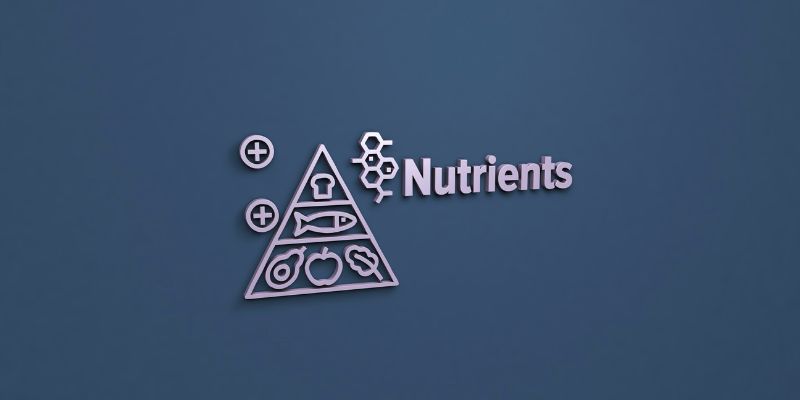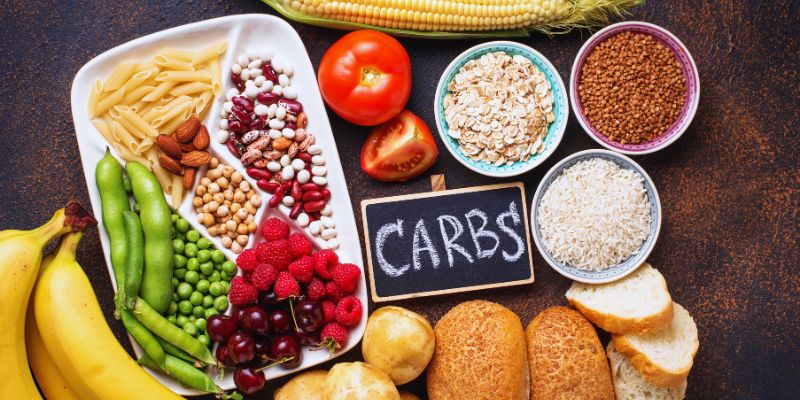What Are The 6 Essential Nutrients: Everything You Need To Know
Have you ever wondered what fuels your body and keeps you going daily? Its not just food; its the right balance of six essential nutrients: carbohydrates, proteins, fats, vitamins, minerals, and water. All of these essential nutrients provide energy, carry out various life processes, and facilitate growth and repair.
In short, these simple elements keep every cell functioning optimally; without them, your body cannot be healthy and active. However, few people understand the importance of these essential nutrients and face problems linked to missing out on any of these. If you don't want to be like them, include each of them in your diet. But, before that, learn about these six essential nutrients, their types, sources, and health benefits in detail here.

What Are The 6 Essential Nutrients?
The human body requires a balanced intake of six essential nutrients: carbohydrates, proteins, fats, vitamins, minerals, and water to maintain optimal health and well-being. Each of these nutrients is important to support different functions of the body. Nutrients provide energy, build tissues, improve brain function, and more. So, lets learn about these essential nutrients, their sources, types, and benefits here:
Carbohydrates
Carbohydrates are the most important nutrient, as they provide energy to all the cells and tissues in the human body. There are two types of carbohydrates (simple carbs and complex carbs). Simple carbohydrates provide quick energy, and foods like pasta, white bread, and rice are sources of simple carbs. Complex carbohydrates, on the other hand, provide sustained energy. They are important for the body, and the important sources of these carbs are whole grains, fruits, vegetables, and legumes. According to the human body nutrition chart, the recommended daily value of complex carbohydrates is 45-65%.
Carbohydrates are not only an energy source, but they also provide various health benefits, including the following:
- Support the immune system and nervous system
- Improve the functioning of the brain and digestive system
- Fuel the central nervous system, heart muscles, and kidneys
- Carbs also help in building macromolecules, lipid metabolism, and sparing protein
Protein
Proteins are macronutrients essential for tissue growth and cell function. There are two types of proteins: complete and incomplete. A protein that contains all essential amino acids is known as a complete protein. Most of the animal proteins are called complete proteins. Plant proteins are known as incomplete proteins because they miss at least one or more essential amino acids. Proteins perform different functions, including the following:
- Growth and development of bones, skin, hair, and even muscles
- Protein in the human body produces hormones, antibodies, and many other important substances.
- Protein works as a powerhouse for body tissues and cells.
Now, if you are thinking of protein sources, here are the foods rich in protein:
- Fish and many other types of seafood
- It is suggested that lean cuts of meat be chosen for red meats.
- Chicken and turkey can provide a good amount of protein.
- Egg and dairy products
- Beans, legumes, and nuts
Meat and fish are the best sources of protein. However, vegans can also get enough of it from plant-based options!
Fats
Fats are often considered bad for health but are one of the most important nutrients. There are two types of fats: healthy and unhealthy. The human body needs healthy fats or saturated fats to support optimal health. Nuts, vegetable oils, fish (like salmon and tuna), and seeds are the rich sources of fats. The recommended daily value of fats is 20-35% of daily calories, and healthy fats should make up the majority of fat intake. Here is why fats are needed.
- For the building and the growth of cells
- Prevent blood clotting
- Reduce the risk of diseases like heart and type 2 diabetes
- Best muscle movement of muscle
- Support brain functioning and hormonal production
Water
Water is the most important nutrient that the human body needs. A person cant survive without water as the human body is composed of approximately 60% water, and every cell needs water to function correctly. Here are the major functions of water in the body:
- Filter out toxins
- Shock absorption
- Help with the transportation of other nutrients
- Provide hydration
- Prevent gut problems like constipation.
To maintain proper hydration, it's important to drink sufficient water daily. There are other ways to consume water, like squeezing a lemon to change the taste. Additionally, people can get extra water through fruits because they contain a lot of water.

Vitamins
Vitamins are essential micronutrients. There are 13 essential vitamins divided into two groups: fat-soluble and water-soluble. Here are the vitamins that are considered water-soluble. Vitamin B-1, B-12, B-6, B-2, B-5, B-3, B-9, B-7, and Vitamin C are water soluble. Meanwhile, Vitamins A, D, K, and E are fat soluble. Vegetables, fruits, and lean proteins are the best sources of vitamins. Therefore, to improve vitamin intake, people should consume a diet rich in fruits and vegetables. Vitamins offer various exceptional health benefits, including the following:
- Improve the immunity of humans.
- Help prevent some severe diseases like some types of cancer
- Make the bones and teeth strong
- Provide healthy skin
- Improve the metabolism
- Support healthy blood
- Improve the functioning of the nervous system
Minerals
Minerals are another type of micronutrient. They are divided into two groups: primary and trace. The human body needs balanced minerals to provide good health benefits. Major Minerals include magnesium, calcium, phosphorus, sulfur, sodium, potassium, and chloride. These major or primary minerals provide many health benefits, such as maintaining the balance of water levels in the body.
Major minerals also play a key role in keeping skin, nails, and hair healthy. Trace minerals are iron, selenium, zinc, manganese, chromium, copper, iodine, and fluoride. Our body needs these minerals to strengthen bones and teeth, support the immune system, and maintain healthy blood pressure. Read meats, seafood, milk, other dairy products, nuts and seeds, vegetables (especially leafy greens), fruits, and whole grains are mineral-rich foods.
Conclusion:
Adding all six essential nutrients (carbohydrates, proteins, fats, vitamins, minerals, and water) into your daily diet is important for your health. Each nutrient is needed to support different body functions. Likewise, a deficiency of any of these can cause serious health issues. By understanding the benefits and the best food sources of these nutrients, you can make the best choices to improve your overall well-being!












